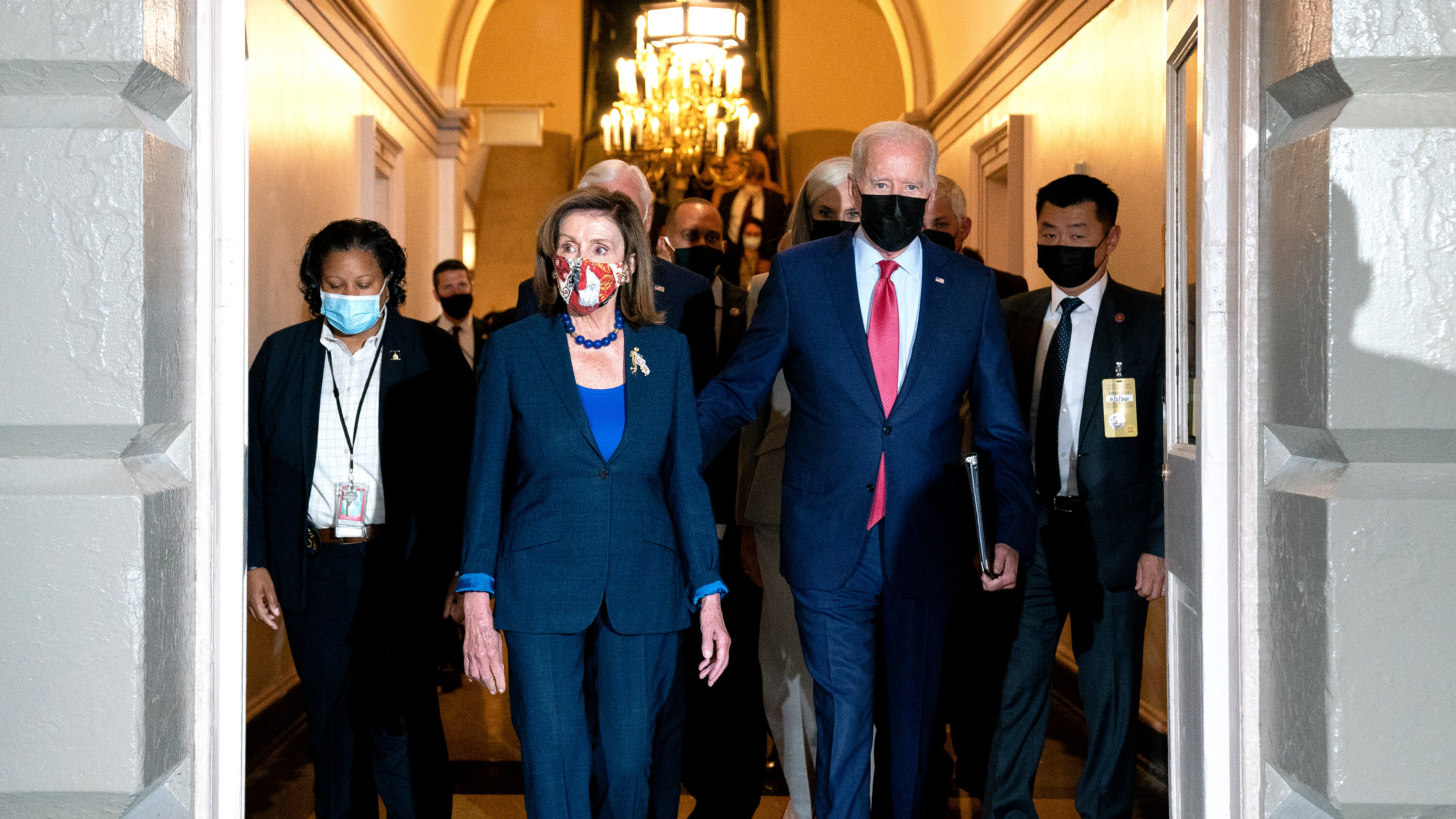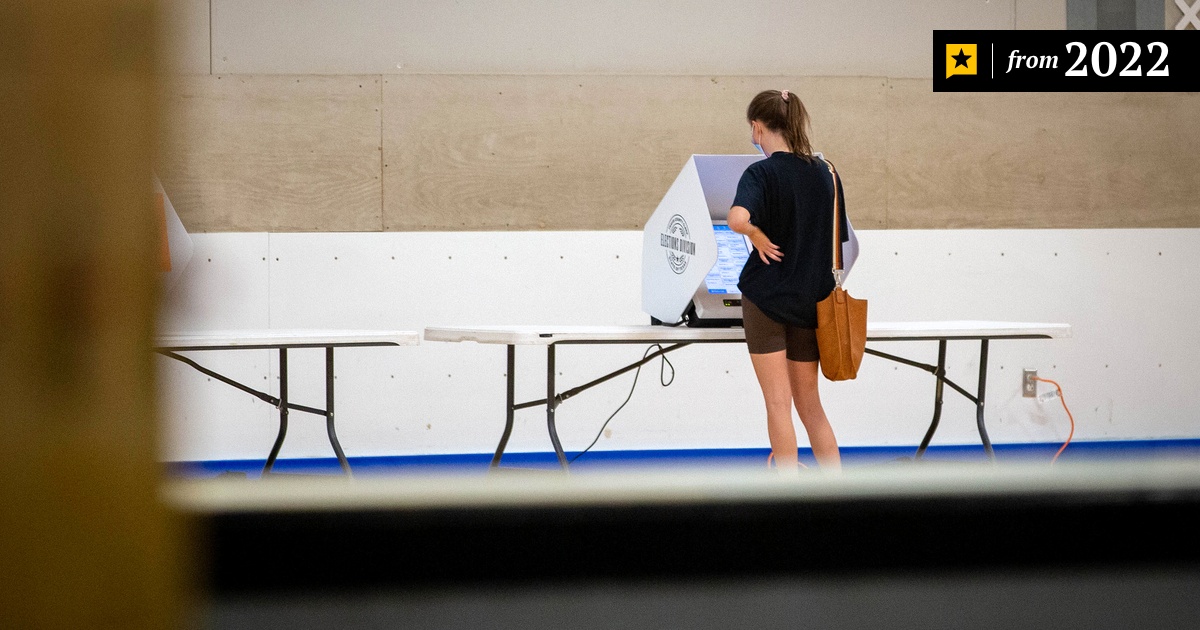Medicaid And Clean Energy Disputes Delay GOP Tax Bill Passage

Table of Contents
Medicaid Funding Conflicts within the GOP Tax Bill
The GOP tax bill's proposed changes to Medicaid have ignited a fierce internal debate within the Republican party, exposing deep divisions between conservative and moderate factions. These disagreements are proving to be a major obstacle to the bill's passage.
Conservative vs. Moderate Republican Positions
The core conflict centers on the extent of Medicaid cuts and the approach to Medicaid expansion.
- Conservative Republicans: Advocate for significant Medicaid cuts, arguing that the program is unsustainable in its current form and needs drastic reform to control costs. They propose block grants to states, shifting more responsibility and funding decisions to the state level. Some proposals suggest cuts of up to 20% in federal Medicaid funding.
- Moderate Republicans: Express concerns about the potential impact of deep cuts on vulnerable populations and argue for a more gradual approach. They emphasize the importance of maintaining access to healthcare for millions of Americans who rely on Medicaid. They often propose alternative solutions, such as focusing on efficiency improvements within the system rather than drastic funding reductions.
These differing viewpoints have led to significant infighting within the party, hampering efforts to unify behind a single bill. The potential impact of these Medicaid cuts on millions of beneficiaries is immense, making this a highly contentious issue. The debate is further complicated by projections of significant job losses in the healthcare sector as a result of these cuts.
The Impact of Medicaid Cuts on States
Proposed Medicaid cuts will have a profound impact on individual states and their budgets, particularly those that have expanded Medicaid under the Affordable Care Act.
- States heavily reliant on Medicaid funding: States like California, New York, and Texas, with large populations relying on Medicaid, will face enormous budget challenges. They'll have to either drastically reduce services or increase state taxes to cover the shortfall.
- Potential job losses: Reduced Medicaid funding will likely lead to layoffs in the healthcare sector, including hospitals, nursing homes, and home healthcare agencies. This would exacerbate existing labor shortages and negatively impact healthcare access for all citizens.
States are actively lobbying Congress to mitigate the impact of these potential cuts, highlighting the significant economic and social consequences they foresee. The uncertainty surrounding Medicaid funding is causing significant anxiety among state officials and healthcare providers.
Clean Energy Provisions and the GOP Tax Bill
The GOP tax bill's provisions concerning clean energy have also sparked significant controversy, pitting environmental concerns against economic interests.
Debate over Tax Credits for Renewable Energy
A major point of contention is the proposed changes to tax credits for renewable energy sources.
- Elimination of tax credits: Some proposals within the bill seek to eliminate or significantly reduce existing tax credits for solar and wind energy, potentially hindering the growth of these sectors. Proponents argue that these subsidies are no longer necessary and distort the market.
- Retention of tax credits: Opponents contend that eliminating these credits would stifle innovation and investment in renewable energy, hindering the transition to a cleaner energy future. They highlight the economic benefits of the renewable energy sector, including job creation and economic growth. The environmental impact of reduced investment in clean energy is also a significant concern.
Influence of Lobbying Groups
The legislative process surrounding clean energy provisions is heavily influenced by lobbying groups representing both fossil fuel and renewable energy industries.
- Fossil fuel industry lobbying: Groups representing the fossil fuel industry are actively lobbying to limit or eliminate tax credits for renewable energy, arguing that these subsidies create unfair competition.
- Renewable energy industry lobbying: Conversely, renewable energy groups are pushing to maintain or even expand tax credits, emphasizing the importance of government support for a transition to a sustainable energy future. The intense lobbying efforts from both sides highlight the significant economic stakes involved.
This intense lobbying underscores the powerful influence of special interests in shaping energy policy and influencing the passage of the GOP tax bill.
The Overall Stalemate and its Political Ramifications
The delays caused by the disagreements over Medicaid and clean energy provisions are having significant political ramifications for the Republican party.
Implications for the Republican Party
The ongoing stalemate is damaging the Republican party's image and hindering its ability to advance its legislative agenda.
- Political fallout: The inability to pass a key piece of legislation is causing frustration among voters and potentially hurting the party's standing in upcoming elections. Public opinion polls show declining support for the GOP tax bill.
- Midterm elections: The delays could negatively impact the Republican party's performance in the upcoming midterm elections, with potential losses in both the House and Senate.
Potential Compromise and Future of the Bill
To secure passage, compromises will likely be necessary.
- Negotiations and amendments: Amendments to the bill addressing concerns about Medicaid and clean energy are likely to be proposed and negotiated between different factions within the Republican party and potentially with Democrats.
- Possible scenarios: Several scenarios are possible, ranging from minor adjustments to the bill to a complete overhaul of the contentious provisions. The future of the bill remains uncertain.
Conclusion
The disagreements over Medicaid and clean energy provisions are significantly delaying the passage of the GOP tax bill, creating a major political challenge for the Republican party. The potential impacts extend far beyond the bill itself, affecting state budgets, healthcare access, job creation in various sectors, and the nation's commitment to a cleaner energy future. The political fallout from these delays could be significant, influencing upcoming elections and impacting the Republican party's ability to govern effectively. Stay informed on the ongoing debate surrounding the GOP tax bill and its critical provisions on Medicaid and clean energy. The future of healthcare and the environment hangs in the balance, and understanding these crucial issues is vital for informed civic engagement.

Featured Posts
-
 The Kardashian Censori West Feud An Unexpected Twist
May 18, 2025
The Kardashian Censori West Feud An Unexpected Twist
May 18, 2025 -
 Alleged Drug Smuggling American Basketball Player Arrested In Indonesia Death Penalty A Threat
May 18, 2025
Alleged Drug Smuggling American Basketball Player Arrested In Indonesia Death Penalty A Threat
May 18, 2025 -
 Snl Audiences Profanity Filled Reaction To Ego Nwodim Sketch
May 18, 2025
Snl Audiences Profanity Filled Reaction To Ego Nwodim Sketch
May 18, 2025 -
 Southeast Texas Gears Up For Key Municipal Elections In May 2025
May 18, 2025
Southeast Texas Gears Up For Key Municipal Elections In May 2025
May 18, 2025 -
 Dam Square Car Explosion Driver Succumbs To Injuries Suicide Suspected
May 18, 2025
Dam Square Car Explosion Driver Succumbs To Injuries Suicide Suspected
May 18, 2025
Latest Posts
-
 Gonsolin Dominates In First 2023 Game Dodgers Win Fifth Straight
May 18, 2025
Gonsolin Dominates In First 2023 Game Dodgers Win Fifth Straight
May 18, 2025 -
 Gonsolins Solid Performance Fuels Dodgers Five Game Winning Streak
May 18, 2025
Gonsolins Solid Performance Fuels Dodgers Five Game Winning Streak
May 18, 2025 -
 Rising To The Challenge Ohtanis Performance Against Yomiuri Giants
May 18, 2025
Rising To The Challenge Ohtanis Performance Against Yomiuri Giants
May 18, 2025 -
 Confortos Path To Dodger Blue Can He Mirror Hernandezs Impact
May 18, 2025
Confortos Path To Dodger Blue Can He Mirror Hernandezs Impact
May 18, 2025 -
 Shohei Ohtanis Return To Japan A 2 Run Homer Highlight
May 18, 2025
Shohei Ohtanis Return To Japan A 2 Run Homer Highlight
May 18, 2025
